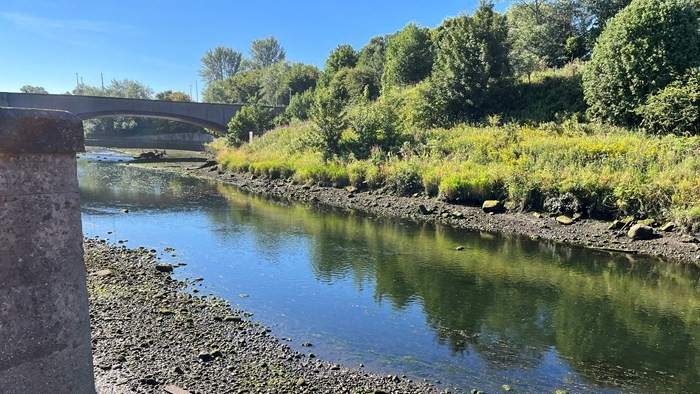The Scottish Environment Protection Agency (SEPA) is suspending water abstractions for most licence holders in mid and north Fife as river and groundwater levels become critical in the east of Scotland.
The water environment in the River Eden catchment reached Significant Scarcity last week, the highest category for water scarcity defined by SEPA, and is getting worse with hot and dry weather continuing.
The Tweed catchment in the Borders is in a similar situation and has also now reached Significant Scarcity in the latest report published on Friday 12 August.
A temporary suspension on water abstraction licences is being imposed for the vast majority of farmers in the River Eden catchment to allow levels to recover. SEPA is working with the Scottish Government to assess the options around soft fruit production, which is a perennial crop and typically has more efficient irrigation methods and a lower water impact.
Abstractors in the Tweed catchment are also being contacted to confirm next steps and any licence suspensions in this area will take effect early next week.
Suspensions are part of Scotland’s National Water Scarcity Plan, which is designed to ensure the correct balance is struck between protecting the environment and providing resource for human and economic activity during prolonged dry periods.
The Plan clearly sets out what actions SEPA and abstractors are required to take at each stage of water scarcity. Suspensions are predominantly within the agriculture sector, will be for the minimum time necessary and will be lifted as soon as possible.
Those abstractors affected will receive suspension notices. Continuing to abstract without a licence is an offence, and SEPA officers will be visiting abstractors to ensure compliance. As soon as conditions improve, SEPA will lift the suspensions.
David Harley, Interim Chief Officer Circular Economy for SEPA, said:
“Having to impose suspensions on water abstractions underlines the severity of the conditions being experienced in the east of Scotland this summer. It is not a step we take lightly, but the evidence is clear, and it is one we can no longer avoid.
“We’re working closely with Scottish farmers to ensure the sustainability of local water environments for all who rely on them. Without action, there is a substantial risk of impacts on fish populations, natural habitats and longer-term damage to watercourses.
“With climate change leading to water scarcity becoming a more regular occurrence, we are also working to help businesses plan longer-term for these conditions. We remain in continuous dialogue with sectors reliant on water and work with them all year round on ways to become more resilient, protecting the environment as well as their own operations.”



